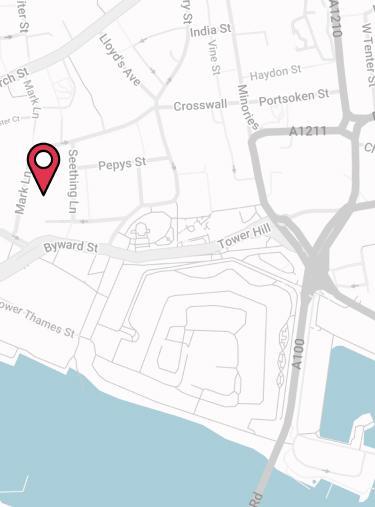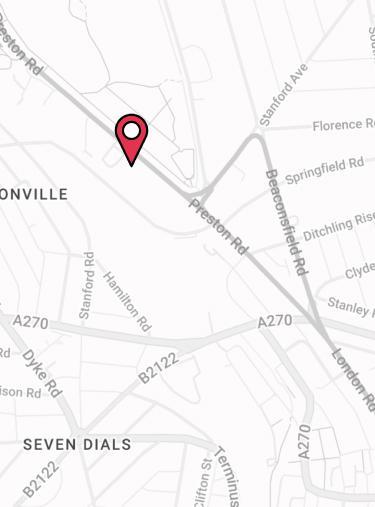
Death In Service Insurance UK 2026
Considering Death in Service (DIS) Insurance for your employees? You’re in the right place. This is one of the many employee benefits employers can set up for their staff.
But what exactly is it? How does it work? And what about the costs? As specialists in the industry, we’re here to provide a rundown for you. Learn all you need to know about Death in Service cover and set up benefits your employees care about.
5 Minute Video Guide To UK Death In Service
Not got enough time to read our guide fully, but want a quick specialist overview of Death In Service? Our very own Nick Nelms gives us the rundown on what you need to consider before taking out a policy for your staff. Just hit play! 👇
What Is Death In Service Insurance?
Death in Service is a benefit provided by an employer to their employees. It’s often referred to as Group Life Insurance. It provides an employee’s family with a tax-free lump sum payment if they die while under contract with your business.
The funds received from a successful claim can be used for anything the beneficiaries want. Funds are often used to:
- Pay off the employee’s remaining mortgage repayments
- Cover the deceased employee’s funeral
- Cover monthly bills (utility bills, rent and general living costs)
- Pay for school fees and childcare costs.
Death In Service Vs Life Insurance
It’s easy to confuse Death In Service and Life Insurance. However, they are different products.
The main difference is Death In Service (DIS) covers a multiple of an employee’s salary, usually between 2 and 4 times. Life Insurance, on the other hand, covers a set amount, e.g. £150,000. An individual will take out a personal policy, whereas an employer takes out Death In Service on behalf of their employees.
With Death In Service Insurance, the employer selects the policy type and payout sum. Whereas personal life cover allows the individual to have more control over their policy. They can choose how much their nominated beneficiaries receive.
Good To Know🤓
Death In Service and personal Life Insurance have different tax liabilities. We cover this in more below.
Why Is Death In Service Cover Important?
Death In Service cover is a valuable benefit to offer to your employees. It provides peace of mind to an employee knowing that if the worst occurs, their loved ones are financially protected. This financial protection can be a lifesaver, ensuring that the employees’ loved ones don’t need to worry about money during an emotional time.
What’s more, the benefit can be paid out quickly in the event of an employee dying. So, not only do they receive a lump sum to help with finances (to cover mortgage payments and utilities bills, etc.), it’s not subject to probate, meaning there are no delays in receiving the funds.
How Does A Death In Service Benefit Work?
When implementing a Death in Service policy, you take out a policy on behalf of your staff. You’ll then choose a level of cover.
In the event an employee passes away while working for you, the insurance company pays out a tax-free lump sum to their nominated beneficiary. The benefit is paid tax free and aims to help the deceased dependents cope financially during what is already a difficult time.
Free Cover Limit
Death In Service often comes with a Free Cover Limit (FCL). Unlike with personal life cover, group policies will cover up to a certain sum without requiring any medical information from the employees. This means for those that may not have been able to get cover on a personal plan, they can with a group policy.
How Is The Benefit Calculated?
The amount paid out by Death In Service cover if an employee dies is typically calculated as a multiple of their salary. For example, between 2 and 4 times their gross annual income. This does vary depending on the policy you take out, though.
Good To Know 🤓
Our latest Employee Benefits Benchmarking report found most employers choose a payout between 2-3 times an employee’s annual salary.
Registered Vs Excepted Death In Service
When setting up the policy, you have two options: either a registered plan or an excepted plan. The choice you make impacts how a claim is managed if an employee dies. Whether it’s a registered scheme or an excepted one determines the type of trust the policy is placed into. Trusts are covered later on in this guide.
What Is The Eligibility Criteria?
For an employer to set up a Death In Service benefit, your company needs at least three employees to be eligible for a scheme. As an employer, you must also confirm your staff meet the following criteria:
- They’re aged between the minimum and maximum entry ages of the policy
- They’re eligible to work in the UK and have a UK employment contract
- The individual is an active employee at the company.
Some employers add their own extra eligibility criteria. For example, an employee must have passed their probationary period before they are enrolled in a scheme.

If your business doesn’t have enough employees, we recommend Relevant Life Insurance. This is essentially the same as Death in Service (DIS) cover, except it can be set up for a single employee.
Relevant Life offers similar tax benefits to a DIS scheme as the policy is owned and paid for by the business. Corporate tax relief is therefore available on the premiums.
Nick Nelms
Senior Consultant, Employee Benefits
Who Gets The Death In Service Payment?
Should a deceased employee’s family make a successful claim, the employees’ nominated beneficiaries will receive the Death In Service payment. This is whoever the employee nominated in their beneficiary form when you enrolled them into the scheme. It might be their spouse, children, or other dependent who then receive the tax-free lump sum.
How Long Does Cover Last For?
Death In Service lasts until the predefined policy ‘cease age’. This could be set to an employee’s State Pension Age (which varies depending on the individual) or to an age specified when you buy cover as the employer.
To comply with pension regulations (which these schemes fall under) the maximum cease age for these policies is 75. The older you set the cease age, the higher the cost of your monthly or annual premium. Death In Service cover also ends when an employee is no longer working for your organisation.
How Long Does It Take To Pay Out?
This will depend on how soon the insurer is made aware of an employee’s death. Most claims are typically paid out within 60 days of notification of death. Some insurers will pay out faster.
For a timely payout, an employee’s loved ones will need to make sure they have the right information when contacting the insurer. They will most likely need:
- The name of the deceased
- Date and cause of death (as stated on the death certificate)
- The policy number
- Your name and your relationship to the deceased, as well as your contact details.
Is Death In Service Mandatory In The UK?
Although it’s normally the first benefit a company sets up for its staff, it isn’t a mandatory employee benefit in the UK.
It’s down to you, as the employer, whether you offer this benefit to your employees. Many choose to arrange a group policy as an additional perk of employment. But you don’t have any legal obligation to provide it. It does offer a wide range of benefits to you and your staff (more on that later!)
SPECIALIST TIP 🤓
This employee benefit can be set up so senior staff get a larger multiple of salary than junior staff.
What Does Death In Service Cover?
UK Death In Service cover pays out on the death of an employee if they pass away while working for your business. The cause of death doesn’t need to be work-related for an employee’s family to make a claim.
Depending on the options you selected, the policy will typically cover between 2 and 4 times an employee’s annual salary. For example, if an employee earns £30,000, their beneficiaries may be entitled to between £60,000 and £120,000 if they die.
Are There Any Additional Perks?
Alongside the benefit amount, most of the top UK Death In Service providers offer a variety of extra services. These are highly valuable to your employees, providing more value beyond the Death In Service benefit.
Insurers often offer these extras for free, so your staff may get access to:
- Virtual GP services
- Mental health support
- Physiotherapy
- Nutrition programmes
- Health & wellbeing discounts.

With the NHS currently facing many challenges, such as long waiting lists, the virtual GP services can help staff access medical care much sooner. You can read about our director, Andrew’s experience of using a virtual GP service.
Nick Nelms
Senior Consultant, Employee Benefits
What About Exclusions?
Like any type of insurance product, there are exclusions that apply to all policyholders / members regardless of age or location.
Death in Service will not pay out if the death is caused by:
- Suicide
- Alcohol / drug abuse
- Dangerous sports / hobbies
- Pursuit of criminal activity.
What Are The Benefits Of Death In Service Cover?
In our recent 2024 Employee Benefits Survey, we asked employees about their company benefits. Only 13% of staff were truly happy with the benefits their employer provided. Another 20% said they wanted their employer to provide insurance policies to protect them and their loved ones, like Death In Service cover.
It’s important to tailor your benefits package to the needs of your employees. This way they can get more value from their employment perks. This has many benefits for you and your staff, including:
Benefits For Employers
By providing a Death In Service benefit, you can show your employees that you value them. It can also help to:
- Attract and retain your best talent
- Improve employee engagement and morale
- Stand out from your competitors
- Position yourself as a top employer
- Reduce absenteeism (even more so when paired with an Employee Assistance Programme).
Benefits For Employees
Only 35% of the UK population has Life Insurance. For many, the main reason people don’t have a policy is because of the cost.
When you pay for cover as their employer, your employees needn’t worry about the cost of a policy. They won’t have to pay a penny towards cover.
Another benefit is an employee’s eligibility for cover isn’t determined by their health or lifestyle—unlike personal Life Insurance policies. This means all employees are guaranteed to get cover. Thanks to the Free Cover Limit (FCL), staff can get a certain amount of cover (predetermined by the policy / insurer) before the insurer requires any medical evidence from the individual.
Let’s say the FCL is £750,000. Only employees with a level of cover exceeding this amount would need to complete medical underwriting.
Free Additional Benefits
Employees also have access to certain extra benefits, depending on your provider (we’ve mentioned a few of these already). They can use these without a claim needing to be made, providing additional value to the employee. These services are normally free to use, including:
- Employee Assistance Programmes (EAP)
- 24/7 Digital GP service
- Physiotherapy
- Mental health & counselling helpline
- Nutrition and fitness programs.
These services are highly valuable to staff, helping them to take care of their physical and mental wellbeing. Whether it’s having a confidential talk with a professional about their mental health or getting a GP appointment quickly, your staff will benefit enormously from these free perks.
Your employees will have peace of mind knowing that their family is financially protected if they pass away while working for you. Death can often put financial pressure on a family to cover the costs and continue covering day-to-day expenses, so Death In Service can help relieve some of that pressure.
Corporate Client Stories
How Much Does Death In Service Cost Employers?
The cost of Death in Service cover depends on the demographic of your employees. As there are many factors for an insurer to consider, we can only provide an estimated quote. That said, it’s one of the most affordable group insurance policies to implement.
Here are the major factors that influence the price of premiums:
- Employees’ ages
Just like an independent Life Insurance policy, age impacts the cost of premiums. Younger staff will cost less to insure, while older employees have an increased risk due to age - Staff salaries and job roles
You can set up varying levels of cover for workers (e.g. more cover for senior members than junior members) - Your industry
Industries that pose a greater risk of injury, such as construction, will pay more for cover - Number of staff
The more staff you wish to provide cover to, the more the scheme will cost.
While premiums vary, we’ve got some example costs based on the cheapest quotes for two recent clients.
Software Company | Health Services Company | |
|---|---|---|
Location | London | Barnsley |
Employees | 10 | 100 |
Cease Age | State Retirement Age | State Retirement Age |
Level of Cover | 4x Annual Salary | 2 x Annual Salary | Cost Per Employee | £31.97 per month | £10.03 per month |
These quotes are for illustration purposes only. If you need help to compare quotes from the UK insurers, get in touch by calling 02074425880 or email help@drewberry.co.uk.
Is Death In Service Taxable?
No. It’s a tax-free benefit for employers to offer their employees. HMRC considers a Death in Service policy as a business expense for employers. So, the premiums you pay are eligible for corporation tax relief.
What’s more, it’s not considered a P11D / Benefit in Kind, meaning employees won’t have to pay any extra Income Tax for the benefit.
Is Inheritance Tax Paid On The Death In Service Benefit?
The Death In Service benefit works the same as a personal life policy. It goes into a trust before the policy goes live, so the lump sum isn’t liable for tax.
When something is written into trust, it means it’s not included as part of an individual’s estate. Should an employee die, the benefit payable isn’t included in their estate and Inheritance Tax isn’t due. This provides an additional benefit to the employee’s family, as the full benefit is theirs.
When a claim is made, the trust distributes the payout to the employee’s beneficiaries. When communicating your Death In Service scheme, it’s important to ensure that your employees nominate their beneficiaries. This ensures speedy payment of a claim should the worst happen.
Which Type Of Trust Should Be Used?
In most cases, you’ll need a discretionary trust to set up your Death In Service benefit. However, you have two options:
- A trust you set up, own and administer as an employer
- The insurer’s master trust.
The former offers a bespoke approach, providing your business with the most control. But that does mean you’ll be responsible for all aspects of admin and staying on top of any trust law changes.
Whereas an insurer’s master trust is a ‘readymade’ trust the insurer owns. This type of trust contains the policies of multiple companies at once. The insurer takes care of everything, so there’s less admin for the employer. For this reason, many of our clients opt for the insurer’s master trust for ease of setup and management.

Trusts can be a complicated topic to navigate, so we always recommend speaking to a specialist, such as one of us at Drewberry™.
If you need help, get in touch on 02074425880 or email help@drewberry.co.uk.
Danielle Bines
Consultant, Employee Benefits
How Does Death In Service Fit With Other Employee Benefits?
Since it’s an affordable and valuable benefit, Death In Service is normally the first policy an employer sets up for their staff.
Laying the foundations of your company’s flexible benefits package, it’s a great starting point, which you can later use to introduce other insurance policies. This includes:
- Group Health Insurance
Business Health Insurance covers private healthcare, offering your staff speedy access to treatment exactly when they need it, potentially getting them back to work faster - Group Income Protection
Also known as Group Sick Pay Insurance, Group Income Protection Insurance pays out a proportion of your workers’ wages if they can’t work due to accident or sickness. It works alongside and complements your company’s sick pay policy - Group Critical Illness Insurance
A Critical Illness benefit pays out a lump sum to your staff should they become critically ill with an illness listed in the policy. The most common claims are for cancer, heart attacks, and strokes.
Want to know more about the workplace benefits you can offer your team? Speak to one of our specialist benefits consultants today by calling 02074425880 or email help@drewberry.co.uk.
Who Are The Best UK Group Death In Service Benefit Providers In 2026?
As an independent employee benefits consultancy, we work with all the top UK insurers. We’re here to do all the heavy lifting for you, sourcing quotes from the best group insurers, including:
- Aviva
- Canada Life
- Legal & General
- MetLife
- Unum.
Every insurer is different, which makes it important to do thorough market research to find the one that best meets the needs of your business. It’s also important to look at the additional benefits they offer alongside the core cover.
Common Questions About Death In Service
Does Death In Service form part of an employee’s estate?
Typically, Death In Service benefits aren’t included in an employee’s estate. The benefit is set up so that the payout enters a discretionary trust. From there, the trustees distribute the funds directly to the employee’s beneficiaries, therefore preventing it from being regarded as part of the estate.
Do employees need personal Life Insurance if they get Death in Service?
It all depends on the individual. If an employee leaves your company, they’ll no longer be eligible for cover. But if an individual chooses to take out a personal Life Insurance policy, they’ll be covered regardless of their employment with you. We find that a lot of our clients ‘top up’ their employer-paid plan with a personal policy.
A personal Life Insurance policy also usually includes a Terminal Illness Benefit, which isn’t included in group plans. This provides an immediate payout if the policyholder is diagnosed with a terminal illness with less than 12 months to live.
Is Death In Service Included in a pension scheme?
Sometimes a company pension scheme is set up to include a Death in Service benefit. This means that if an employee has opted out of their pension, they have no access to the benefit. While it can be part of a workplace pension scheme, most offer Death in Service schemes as a standalone benefit.
Is Death In Service Insurance the same as Life Insurance?
Death In Service Insurance and Life Insurance are similar, in that both products aim to help a loved one’s family financially in the event that the policyholder dies. However, Death In Service is a policy set up and provided by an employer for their employees, with cover based on a multiple of the employee’s annual salary. Life Insurance is a personal policy, providing a set sum if the policyholder passes away.
Compare Death In Service Insurance UK Quotes And Get Specialist Advice
Setting up and maintaining your company benefits can be a bit of a headache. But that’s where our fantastic team of specialist regulated advisers step in. We can take the workload off your desk and ensure your benefits are set up properly.
We help businesses of all sizes across the UK set up their benefits, making sure they have the best policies for their staff at the most competitive price.
Our team has the knowledge and knowledge to help set up the right benefits for your business. Get in touch with us today by calling 02074425880 or email help@drewberry.co.uk.
Why Speak to Us?
Employee benefits can be a headache. But our specialists do this day-in, day-out, offering first class service when you need it most. Here’s why you should talk to us:
- Award-winning independent employee benefits consultants, working with leading UK insurers and benefit providers
- Assigned specialist on hand to help – every step of the way
- 4100 and growing independent client reviews rating us at 4.92 / 5
- Authorised and regulated by the Financial Conduct Authority. Find us on the financial services register
- Claims support when you need it most.
Contact Us
125-135 Preston Road
Brighton
BN1 6AF
Cookies
Drewberry™ uses cookies to offer you the best experience online. By continuing to use our website you agree to the use of cookies including for ad personalization.
If you would like to know more about cookies and how to manage them please view our privacy & cookie policy.









